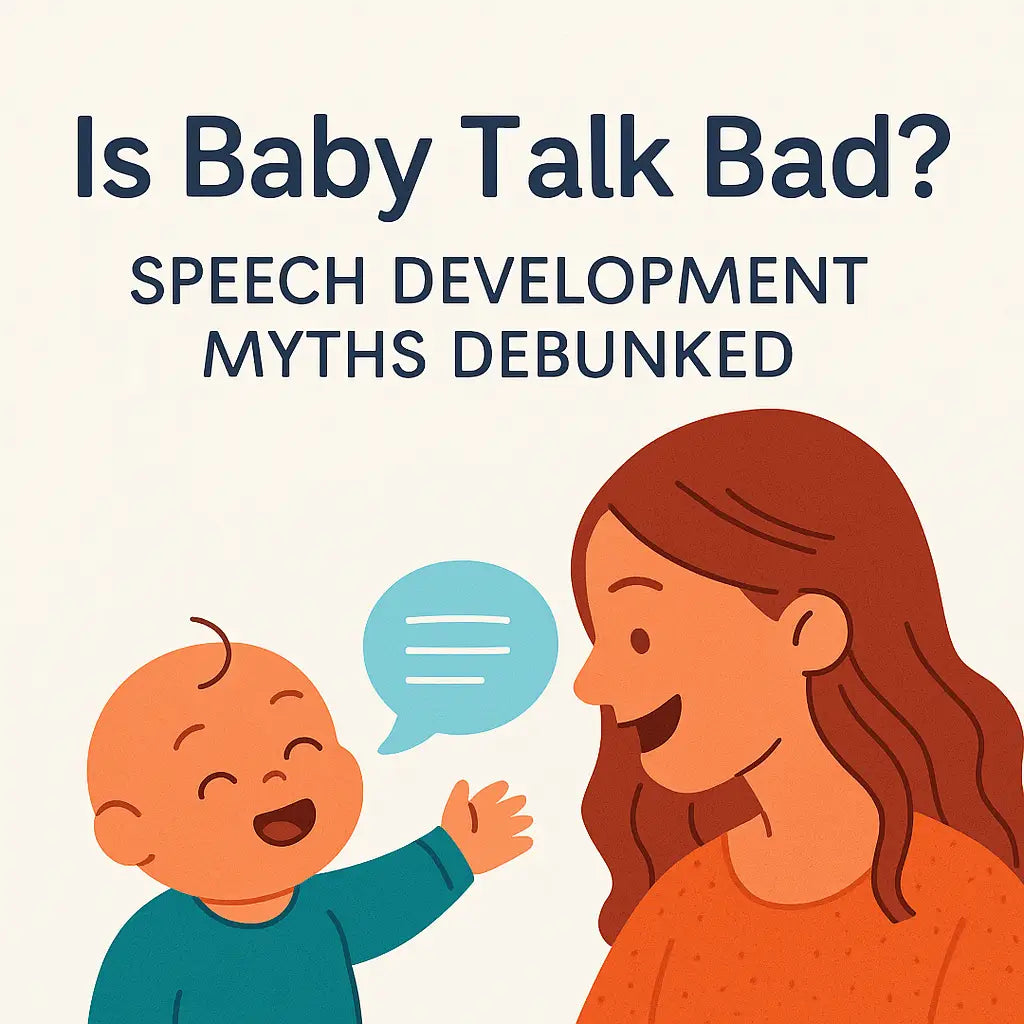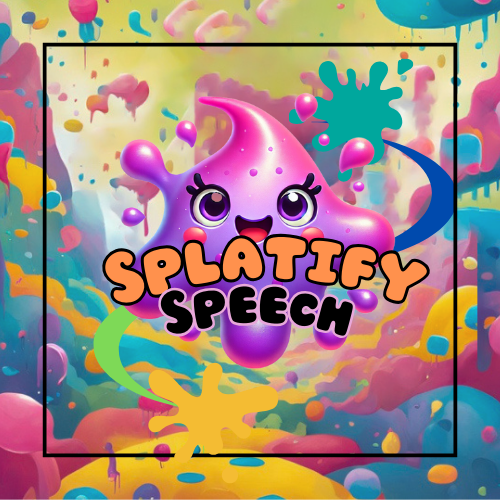
Is Baby Talk Bad? Speech Development Myths Debunked
Is Baby Talk Bad? Speech Development Myths Debunked
By Jennifer Spencer, M.S., CCC-SLP | Pediatric Speech-Language Pathologist & Founder of Splatify Speech
“Should I stop using baby talk?”
“Will it delay my child’s speech?”
“Am I hurting their language skills if I say ‘baba’ instead of ‘bottle’?”
If you’ve ever asked yourself these questions, you’re not alone. In fact, “baby talk” might be one of the most misunderstood parts of early speech development.
In this post, I’ll break down the truth about baby talk, explain what actually supports speech development, and debunk common myths that confuse or worry parents.
Let’s clear the air—so you can feel confident about how you speak to your baby.
👶 What Is Baby Talk, Really?
“Baby talk” can mean two very different things:
1. ❌ Nonsense Baby Talk
This includes overly cutesy or inaccurate made-up words:
-
“Wawa” for water
-
“Num-num” for food
-
“Buh-buh” for blanket
Used excessively or without real-word exposure, this version can confuse children or delay word learning—especially beyond toddlerhood.
2. ✅ Infant-Directed Speech (aka Parentese)
This is the good kind of baby talk, and research shows it actually boosts language learning. It includes:
-
Exaggerated facial expressions
-
Sing-songy tone and slower pace
-
Simple, grammatically correct words
-
Lots of repetition and clear articulation
💡 The research is clear: Babies prefer this style of talking—and they learn more from it.
🧠 Why “Parentese” Boosts Brain Development
Studies show that using infant-directed speech helps babies:
-
Pay closer attention to speech sounds
-
Recognize and process words more quickly
-
Develop stronger social-emotional connections
-
Build early turn-taking and back-and-forth conversation skills
A landmark study at the University of Washington found that babies exposed to more “parentese” had significantly larger vocabularies by age 2.
So no—baby talk isn't bad. But the type of baby talk you use matters.
❌ Common Baby Talk Myths (Debunked)
MYTH 1: “If I talk too slowly, they’ll never learn to talk fast.”
Truth: Speaking slowly helps children segment words and absorb meaning. They’ll naturally speed up when they’re ready.
MYTH 2: “Using made-up words is cute and harmless.”
Truth: It’s okay occasionally, but always pair it with the real word. For example:
“Do you want your binky—your pacifier?”
MYTH 3: “My child will learn speech from cartoons or screen time.”
Truth: Kids learn language through interaction, not passive listening. Even educational shows can’t replace responsive human conversation.
MYTH 4: “I should wait until they can talk before having conversations.”
Truth: Talking to your baby from birth helps wire their brain for language—even before they can speak back.
💬 How to Use Baby Talk The Right Way
Here are some simple strategies that support your baby’s speech development:
🗣️ 1. Use Exaggerated, Clear Speech
Say: “Do you want your bottle?” (not “baba”)
Emphasize key words and slow down your rate of speech.
👀 2. Match Your Face to Your Words
Babies love expressive faces! This builds joint attention and social communication.
🔁 3. Repeat. Repeat. Repeat.
Children need many exposures to a word before they can say it. Repetition helps solidify meaning.
🧸 4. Label What’s Around You
Name objects, actions, and feelings throughout your day.
Example: “Look! A ball. The ball is rolling!”
👐 5. Respond Like It’s a Conversation
If your baby babbles, pause and answer back. That’s early turn-taking—and the foundation of true communication.
💡 Real Talk: Will Baby Talk Ruin My Child’s Speech?
No—but using only cutesy, made-up words without exposing your child to real, clear language can slow things down.
The key is balance. Talk to your child often, clearly, and responsively—and you’re doing exactly what their brain needs.
📘 Want More Help Supporting Speech at Home?
Check out my book:
Speech Success at Home
A parent-friendly guide packed with:
-
Expert advice on how to support speech milestones
-
Everyday routines that boost language development
-
Printable tools to use during play, meals, and more!
👉 Order now and start building speech success—one conversation at a time.
📌 Tag your progress using #SpeechSuccessAtHome to connect with other parents!
✋ Final Thoughts
Baby talk isn’t bad—it’s misunderstood.
When used the right way, it’s one of the best tools we have to nurture communication skills.
So go ahead and sing your silly song, make eye contact, repeat that word 10 times, and enjoy every babble, coo, and giggle. You’re building your child’s future voice—with love and science behind you.
